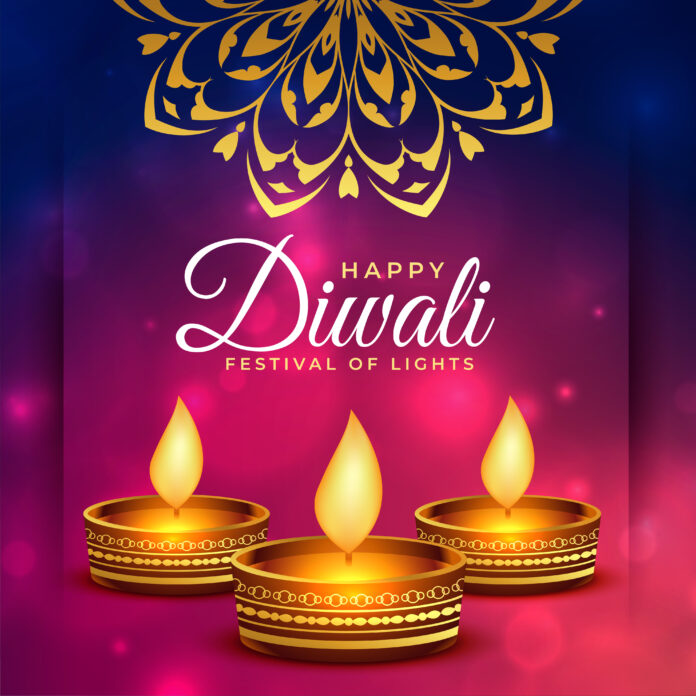Diwali, which is also called Deepavali, is one of the most popular holidays in India and for people of Indian origin. This is why it is sometimes referred to as the “Festival of Lights”, and is packed with cultural, religious, and social meaning. The word “Deepavali” is derived from two Sanskrit words: The name ‘Deepa’ stands for light and ‘Avali’ which refers to a row, which reminds the existence of rows of lights during the festival which illuminates houses or streets.
The Legend behind Diwali
Diwali has its root in mythology and tradition. The Ramayana is one of the most famous epics linked with Diwali, but there are other legends associated with the festival as well. It marks the victory of Lord Rama after 14 years of vanvaas or exile as well as after defeating the demon king Ravana. The people of Ayodhya welcomed him by lighting diyas, which are oil lamps, to signify his homecoming and to drive out the darkness.
There is another great story for the victory of good over evil: Lord Krishna killing the demon Narakasura. In certain parts of the world, Diwali is also dedicated to the goddess Lakshmi, the goddess of wealth, and is a good time to welcome her into one’s home.
The Celebration
Diwali is celebrated over five days, each day holding its own importance:
- Dhanteras: The first day of the festival is known as the first day of the festival. On this day it is favored and lucky to buy gold, silver or new utensils in order to gain wealth.
- Naraka Chaturdashi: Called Chhoti Diwali, this day is dedicated to the triumph of Lord Krishna over the demon Narakasura. A person bathes early in the morning to remove evils and then light lamps to avoid evils.
- Lakshmi Puja: This is the main day of Diwali on which people pray to Goddess Lakshmi and Lord Ganesha at home. People decorate their homes with rangoli, oil lamps and candles. People celebrate this time of the year with fire works and sharing of sweets and gifts with families.
- Govardhan Puja: This day of the year is celebrated in order to honor Lord Krishna who supposedly lifted Mount Govardhan in order to shield his followers from a torrential down pour.
- Bhai Dooj: The last day of the Diwali festival is dedicated to the relationship of brothers and sisters. Sisters bless their brothers for long life and prosperity and in turn, the brothers give them gifts.
Symbolism of Diwali
Diwali signifies triumph of light over darkness, knowledge over ignorance, and the good over the evil. It is a way of removing all forms of negativity in our lives by switching on lamps whenever it is dark. It also represents hope, new beginning and the first month of the year in some parts of India.
Besides, Diwali has great religious importance and is also enjoyed by gathering with families and friends. The excitement of sharing sweets, wearing new clothes and adorning homes brings out the feeling of oneness.
Eco-Friendly Diwali
Recently, more people have become concerned with how Diwali could be celebrated in an environmentally friendly manner. Firecrackers also cause air and noise pollution because of the improper display they are caused in large quantities. People are today going for a ‘Green Diwali’ option and thus using less fire crackers, using lamps instead of electric lights for Diwali and using no plastic articles for Diwali.
Conclusion
In essence, Diwali is not just a festival, but rather a symbol of life, hope and a new start in life. It gives a message that even if the night is the darkest light will always win. The festival therefore comes with happiness and prosperity to all and sundry.
As the lights of Diwali shine brightly, may they bring you joy, peace, and success!
